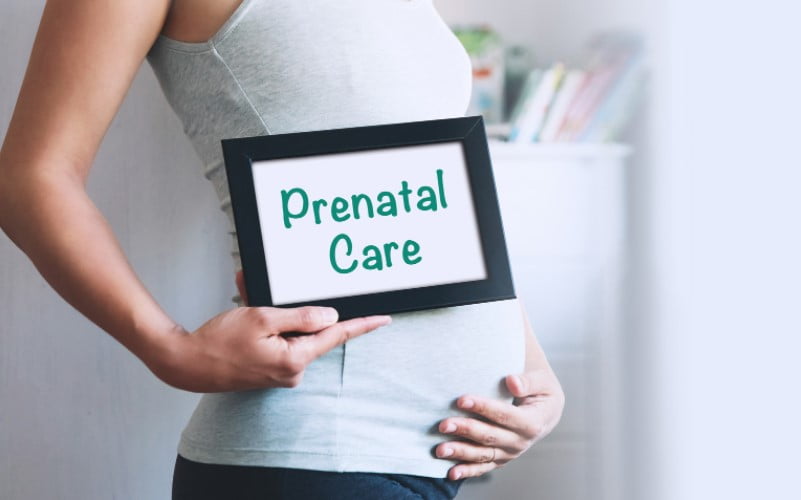Prenatal Care: How Often to Visit Clinic During First Trimester
Pregnancy is the most beautiful period of a woman’s entire life. Proper prenatal care should be done with timely clinic visits for confirmation of healthy pregnancy. Visiting pregnancy clinics regularly to perform pregnancy-related tests, physical examinations, consultation about lifestyle and health precautions, is necessary.
The First Visit
The first prenatal visit is just a follow-up visit after noticing a pregnancy. During this visit, the health care provider checks for the medical history to determine any risk factors in the pregnancy.
Be prepared to answer certain questions to the health care provider:
● Any past pregnancies, gynecological history, medical history, menstrual cycle.
● Medical history of family members.
● Any exposure to toxic or harmful substances such as alcohol, tobacco, etc.
● Use of any prescription medication or supplements.
● Lifestyle and day-to-day routine.
● Travel history for the past few months.
Next Visit (Expected Due Date)
In this visit to the pregnancy clinic, the health care provider will determine the expected date of delivery. It is just the date when a pregnant woman completes her 40 weeks of pregnancy. There is no guarantee that the woman will give birth on the exact due date. There might be fewer or more or even no changes possible on the due date, depending upon the baby’s growth.
Visit for Physical Check-ups
Usually, with every visit, the health care provider performs certain physical exams to determine the health condition and pregnancy condition. They offer checkups for BP, weight, height, body mass index, etc. Also, there are certain other physical exams that a healthcare provider performs including thyroid, lungs, heart, pelvic exam, breast exam, etc.
Lab Tests
The healthcare provider performs lab tests in order to:
● Check the blood type and determine the presence of the Rh factor in it.
● Check hemoglobin to determine the level of RBCs in the blood.
● Check immunity to determine if the body is susceptible to certain infections.
● Check the body to determine exposure to other severe infections such as bladder infections, urinary tract infections, HIV, chlamydia, gonorrhea, syphilis, hepatitis B, etc.
Screening Tests to Determine Fatal Condition
The health care provider performs screening tests to check for any fetal abnormalities. Here, they offer certain blood tests and prenatal genetic screening genetic tests to determine any fatal genetic abnormalities including Down syndrome, etc.
Issues Related to Lifestyle
Consult with the health care provider of the pregnancy clinic in case of any severe issues related to morning sickness, vomiting, nausea, swollen or tender breast, etc. Normal changes in the body and certain discomfort are possible but if it is affecting more, consultation is important.
Other Visits in the First Trimester
During the first trimester, the visit is required within or after every 4 weeks. A first trimester lasts for about 12 to 14 weeks. By that time, it is possible to hear the baby’s heartbeat. The care provider will be able to find any more concerns related to the pregnancy.
Conclusion
The first trimester is the most important part of the whole pregnancy that asks for more care and concern to avoid any pregnancy complications. Visit or take a follow-up with the health care provider in a suitable pregnancy clinic in case of noticing any complications.







